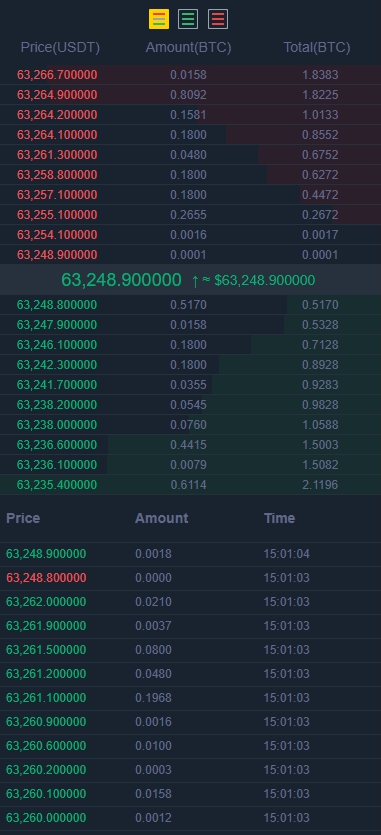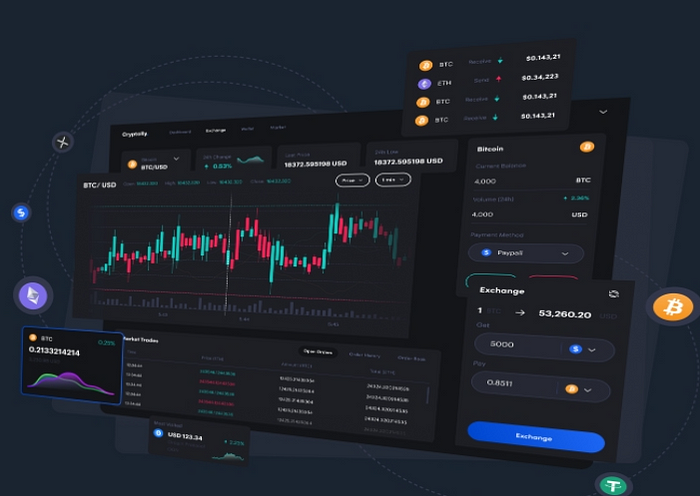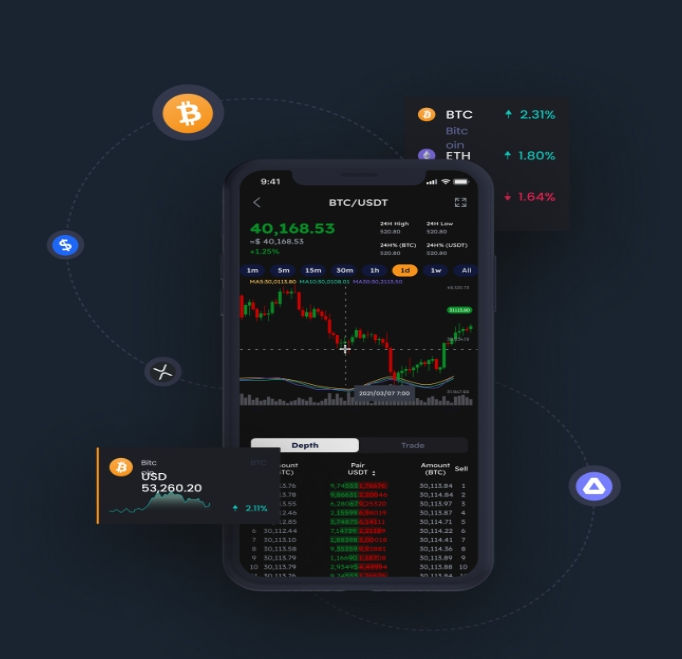Introduction to Bingat trade matching engine
Bingat’s matching engine is a complex software system designed to match buyers and sellers in financial markets.
A modern matching engine matches and executes trades fairly and quickly, resulting in a better, more responsive trading environment.
The Bingat matching engine can use different types of algorithms, which define the order sorting and execution methods of the matching engine. Common algorithms used by matching engines include first-in-first-out (FIFO), Pro-Rata and time-weighted average price (TWAP) algorithms.
Have you ever wondered how buy and sell orders magically get filled on a stock exchange or cryptocurrency trading platform? The secret behind this is what is called a matching engine.

What is a matching engine?
At its core, a matching engine is a complex software system designed to match buyers and sellers in financial markets. We can think of it as a matchmaker in the trading world, matching people who want to buy or sell. The main task of the matching engine is to execute transactions quickly and efficiently to create a level playing field for market participants.
Comparison between matching engines and traditional methods
In the past, trading and order matching relied primarily on phone calls and manual operations. Such systems are significantly more time-consuming and more prone to human error than the complex matching engine systems we use today. In contrast, modern matching engines match and execute trades fairly and quickly.

How does the matching engine work?
Picture traders shouting bid and ask prices in a busy market. In the digital realm, this chaos has been replaced by calm order books. Traders enter their buying or selling intentions and record them in the order book. At this time, the matching engine will step in, first analyze the situation, and then match compatible orders.
Matching algorithms are the brains that support the operation of the matching engine. They follow predefined rules and determine the priority of orders. One of the most common rules is the so-called “first in, first out” (FIFO) rule. The rule is similar to waiting in line at the grocery store, where first-come orders are given priority. Another type of rule is “Pro-Rata”, which tends to prioritize large orders, ensuring that large orders enjoy a proportionately greater share of the available liquidity.
Order matching algorithm
The order matching algorithm defines the functionality of the matching engine. Several order matching algorithm examples are as follows:
1. First in, first out (FIFO) algorithm
FIFO, also known as “First Come, First Served” (FCFS), is a classic algorithm that prioritizes orders based on their price and creation time. When multiple orders have the same price, the system will give priority to matching orders that arrive first to ensure fairness in order execution.
2.Pro-Rata algorithm
The Pro-Rata algorithm is different from the FIFO algorithm in that it prioritizes large orders. This means that if two pending orders are created at the same time and at the same price, the system will prioritize the execution of the order with the larger trade size.
3. Time-weighted average price (TWAP) algorithm
The TWAP-based algorithm calculates the average price of all orders over a period of time and gradually executes multiple trades to reach that average price. The TWAP algorithm can split large orders into smaller orders with the same average price as the initial order, thereby reducing the impact of large orders.

Match engine type
1. Centralized matching engine
The centralized matching engine can achieve real-time matching with extremely fast speed and efficiency. They run on a single centralized server and process orders quickly, making them ideal for high-traffic trading platforms that focus on fast matching.
2. Decentralized matching engine
The decentralized matching engine operates on a peer-to-peer network and is resilient to various attacks. While such engines provide a more secure trading environment, they may sacrifice some speed and efficiency compared to centralized matching engines. Since decentralized matching engines do not use centralized servers, they minimize the risk of leaks and are a safer alternative.

Choose the right matching engine speed
For platforms with higher trading volumes, centralized engines excel at matching orders quickly. In comparison, decentralized engines that rely on peer-to-peer networks can be relatively slow to match.
Security type
Centralized engines rely on centralized servers and are therefore vulnerable to attacks, while decentralized engines run on distributed networks and are more resilient to various potential attacks.
cost
Centralized engines typically charge more due to higher infrastructure and resource requirements. In contrast, decentralized engines run on peer-to-peer networks and typically have lower fees.
Why matching engines are important
In the busy world of trading, where milliseconds can determine success or failure, matching engines play a vital role. The matching engine functions as follows:
1. Efficiently execute orders
An excellent matching engine executes orders quickly. The ability to process orders quickly is critical, especially in a trading environment where every second counts.
2. Maintain fairness and transparency
The matching engine determines the processing order of orders through predefined algorithms to maintain transaction fairness and improve the transparency of transaction execution. Traders can rest assured that their orders will be processed fairly and in accordance with established rules.
3. Provide market liquidity
The matching engine can smoothly match buyers and sellers, thereby increasing market liquidity. With efficient order matching, this liquidity helps create a more responsive market environment.

Conclusion
Although matching engines are often overlooked, they are a testament to the precision and sophistication of modern trading platforms. The matching engine used by Bingat is an invisible force that ensures the smooth operation of the market, allowing traders to execute transactions quickly, fairly and efficiently.

Comments
Post a Comment